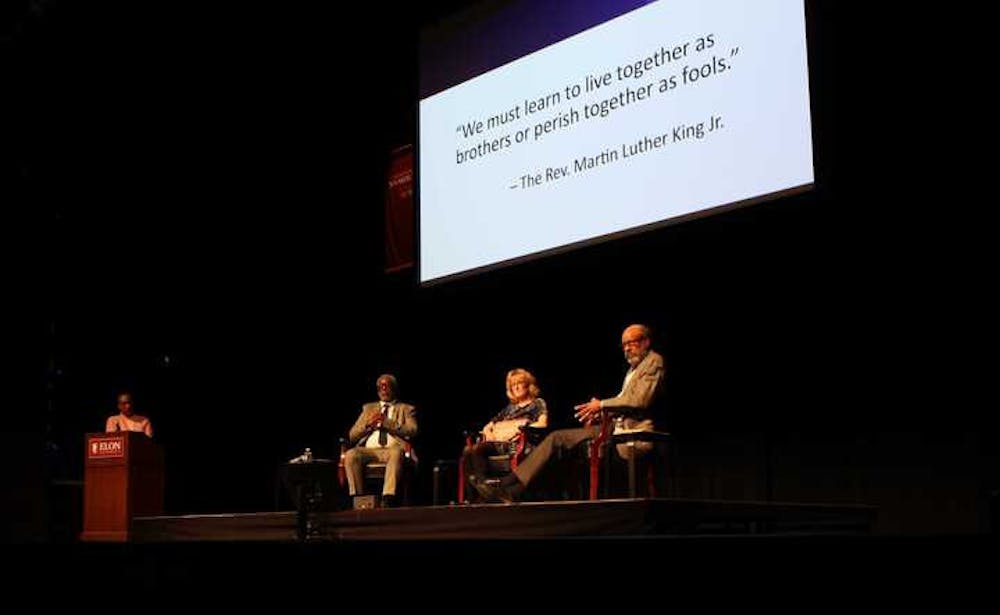Herb Frazier recounted the times in his life when he lived near Mother Emanuel African Methodist Episcopal Church before the shooting that killed nine bible study members in 2015. The shooting was later determined to be a racially-motivated crime committed by then 21-year-old Dylann Roof.
Frazier is one of the authors of “We Are Charleston: Tragedy and Triumph at Mother Emanuel.” Along with co-authors Bernard Powers and Marjory Wentworth, Frazier spoke to the Elon community on Feb. 26 about gun reform as part of the Martin Luther King Jr. Commemorative Address.
“Young peoples’ innocence have been stolen everyday when these things happen,” Powers said. “It’s our responsibility to emphasize those things to people whenever and wherever we can.”
The authors said many of the families of the victims offered forgiveness to the shooter, something they believe is part of the quick arrest of the shooter and the church's history of resilience.
“If you don’t understand the history and what this church meant in its existence, you can’t understand what happened here beyond this horrific murder,” Wentworth said.
Wentworth, a poet and one of the co-authors of “We Are Charleston,” opened the event with her poem “Holy City” in honor of the murder in Charleston. The three authors spoke at the university as a call to action for gun reform in the United States.
“The church is repairing the physical church,” Frazier said. “But the spiritual church. The people. There are still some people who are struggling to try to come back for Sunday service because it’s just too painful.”
The University of North Carolina, Chapel Hill had two gun violence incidents on campus earlier this school year, leaving students hyper-aware of gun control. UNC, Chapel Hill junior Karolina Tuska said having to face two incidents of gun violence during her first two weeks on campus was a nightmare.
“After knowing what we went through this year at UNC, knowing that other young kids feel that terror, we need change at a whole government-national level,” Tuska said.
The authors emphasized that “freedom, justice, all these don’t come overnight.” They asked the audience to continue to vote and fight for what they believe in and reminded the audience of the power of “coming together and speaking truth to power.”
“Mother Emmanuel has been fractured, but I do not think it’s broken,” Frazier said.


